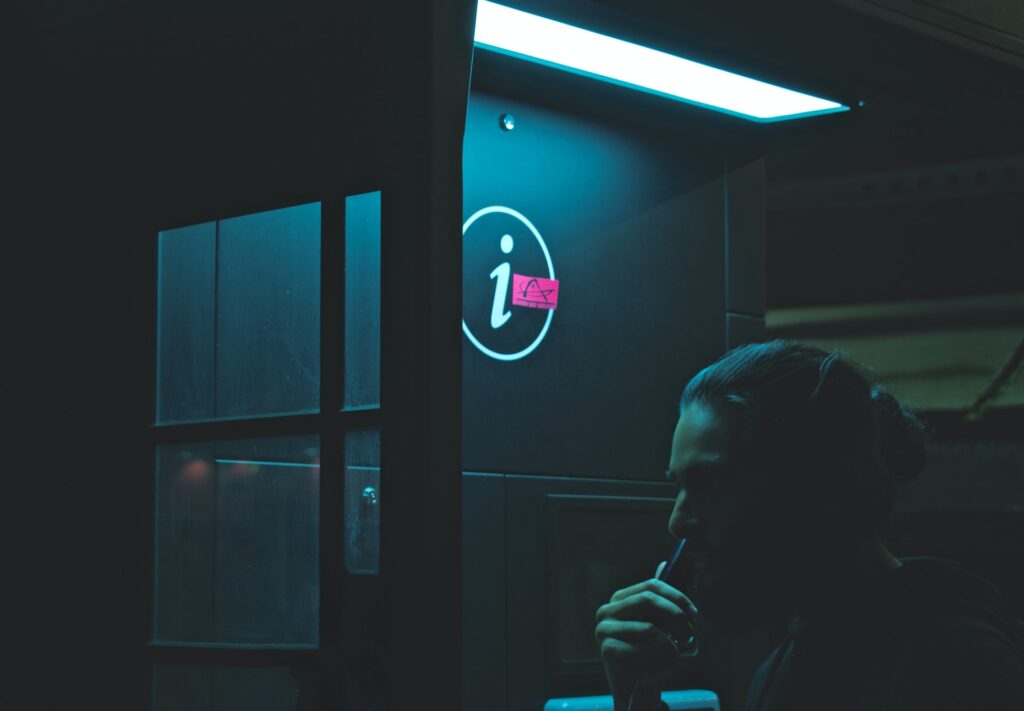Heroin is a highly-addictive illegal opioid drug that can cause major health problems, including death from an overdose. [1] Heroin use continues to be prevalent in the United States, although synthetic opioids such as fentanyl have overtaken it in popularity among drug users. In 2022, 6.5 million Americans over the age of 12 reported using heroin at least once in their lifetime, 1 million people reported past-year use of heroin, and 700,000 reported past-month use of heroin. [2]
Fortunately, the number of heroin overdose deaths has been trending down lately after increasing from around 2,000 in 1999 to nearly 15,500 in 2017. In 2020, approximately 13,000 deaths involving heroin were reported, and this number fell to just under 9,200 deaths in 2021. [3]
Timely access to heroin addiction treatment services is critical for recovery. A heroin hotline plays an important role in helping people understand the dangers of heroin use and get the help they need to quit heroin use successfully. If you are struggling with heroin addiction or are worried about a loved one who is using this powerful and dangerous drug, call our heroin helpline for information, advice, guidance, and resources.
What is a heroin helpline?
A heroin hotline is a telephone number that you can call to get information and advice about heroin abuse and addiction. Representatives at our heroin helpline are knowledgeable and helpful and will answer all your questions about heroin without judgment or reprimand. They can also direct you towards useful resources to help you or a loved one overcome heroin addiction. Calling our helpline is a safe and confidential way to obtain the information you need to make informed decisions about your next steps.
Our heroin hotline is open 24 hours a day, 7 days a week. The phone is answered by trained advisors who provide information regarding heroin abuse and its treatment. All calls are completely confidential and you will not get into trouble with the law for calling. A heroin helpline is often the first step towards recovery for many people battling heroin addiction.
Is my call to a heroin hotline free?
Yes, the National Drug Helpline is a toll-free number where people struggling with heroin addiction can get free information. You do not need health insurance coverage to call our helpline. However, if you decide to start heroin addiction treatment, unless it is covered by your health insurance policy, you will need to pay out-of-pocket.
What questions can a heroin hotline answer?
Some of the questions that representatives at a heroin helpline can answer include:
- How can I tell if a loved one is addicted to heroin?
- What are the dangers of heroin use?
- Are there any rehab programs for heroin in my area?
- Will insurance cover heroin addiction treatment?
- Where can I access psychological support for myself or a loved one?
- What steps can I take to prevent heroin addiction in my loved one?
Heroin hotline numbers
For emergencies or life-threatening situations, such as a suspected or known heroin overdose, call 911 immediately.
The following phone numbers and resources are available to help people struggling with heroin addiction:
National Helpline Number: (844) 289-0879ℹ
Drug Helpline operates a heroin helpline 24 hours a day, 7 days a week. Sometimes we may be unable to answer your call due to insufficient personnel or large call volumes. Please try calling back or contact the following government-sponsored helplines listed below.
SAMHSA: 1-800-662-HELP (4357)
This is a federally funded government helpline. SAMHSA has extensive resources for people with heroin addiction. The 24/7 SAMHSA hotline number provides information and referral services in English and Spanish.
Heroin addicts in crisis can call the National Suicide Prevention Lifeline on 1-800-273-TALK (8255).
For information on a heroin overdose, you can call National Poison Control on 1-800-222-1222.
What resources are available for heroin recovery?
The National Institute on Drug Abuse (NIDA) offers extensive information and advice about drug addiction, including heroin addiction. You can visit their website www.drugabuse.gov or call their phone number 1-877-NIDA-NIH (1-877-643-2644).
Specific information on heroin is available from https://www.drugabuse.gov/publications/drugfacts/heroin.
Parents of teenagers can access information on teen drug use from www.teens.drugabuse.gov.
The Partnership for Drug-Free Kids provides information to parents of children who are abusing heroin. They can be reached on 1-855-DRUGFREE (1-855-378-4373) and https://drugfree.org/article/get-one-on-one-help/.
People who are interested in participating in research studies on heroin addiction can visit this website for more information: https://researchstudies.drugabuse.gov/.
How much does heroin recovery cost?
The cost of heroin addiction treatment is determined by various factors, such as:
Insurance: Most health insurance policies cover at least part of the cost of heroin rehab. Call the Drug Helpline for information about co-pays, deductibles, and out-of-pocket costs for your specific policy.
Inpatient vs outpatient: Outpatient heroin rehab programs are significantly less expensive than residential or partial hospitalization programs. The admissions counselor at a rehab facility can help you identify the type of treatment you need and how much it will cost. In general, you can expect to pay the following for heroin addiction treatment:
Detoxification from $250 to $800 per day
1-month intensive outpatient program from $3,000 to $10,000
12-week outpatient program from $1,400 to $10,000
Inpatient (residential) care from $5,000 to $80,000+
Government vs private rehab: Government-funded programs are low-cost but often have a long waiting list. Private rehabs are more expensive but offer immediate treatment. Luxury rehabs are available for people who can afford treatment that takes place in comfortable facilities with a host of amenities.
Financial assistance: Certain government programs subsidize the cost of heroin rehab. For instance, there are special programs that promote recovery among pregnant and parenting women with opioid use disorders. [4] Some private rehab centers offer sliding scale payments, deferred payment plans, and scholarships to make heroin addiction treatment affordable.
If you are motivated to kick your heroin habit but are not sure if you can afford treatment, stop for a moment and consider the true cost of your drug use. Besides the money you spend on buying heroin each month, you have probably missed work, made poor financial decisions, and entailed significant healthcare expenses due to your heroin use. Once you factor in all these costs, addiction treatment may not seem that expensive.
What can I expect in heroin rehab?
Roughly 6–12 hours after your last dose of heroin, you might experience withdrawal symptoms. Some of the common opioid (e.g., heroin) withdrawal symptoms include restlessness, insomnia, vomiting, diarrhea, muscle pain, bone pain, cold flashes, and involuntary leg movements. [5] During a medically supervised detox, healthcare providers can give you medications to manage these symptoms and keep you as comfortable as possible. You also receive psychological support to overcome drug cravings. Once the detoxification is completed and heroin is out of your system, you can start working on overcoming heroin addiction with the help of medication assisted treatment (MAT) and behavioral therapies.
What type of rehab is typically used for heroin?
As noted above, the first step in heroin rehab is detoxification, which involves allowing the body to get rid of the heroin and managing withdrawal symptoms. Following this, behavioral therapies are instituted to help you learn coping strategies and build resilience. Doctors can also prescribe medications to help you stay clean.
Medications such as buprenorphine and methadone are used during treatment for opioid use disorders. They help people recovering from heroin addiction stop using the drug by reducing cravings and withdrawal symptoms. A medication called naloxone is used to treat an opioid overdose. It blocks the effects of heroin and helps a person who has stopped breathing to start breathing again. If you or someone you know is using heroin or other opioids, look into getting a naloxone auto-injector or nasal spray for emergencies. Since 2023, the FDA has approved an over-the-counter 4 mg naloxone nasal spray that can be purchased without a doctor’s prescription.
Behavioral interventions for heroin addiction help recovering drug users develop the skills necessary for long-term recovery. Two effective modalities, contingency management and cognitive-behavioral therapy, are especially effective in helping people stay drug-free.
Can I call a heroin hotline for a family member?
Yes, our heroin helpline offers guidance and advice to anyone looking for help, including loved ones who are concerned about a friend or family member. You do not have to be using heroin yourself to call our heroin hotline.
What can I expect when I call a heroin helpline?
Our heroin hotline is completely free and operates 24/7 for information and support. It is a toll-free number and does not cost anything to call. The information is also provided free of cost.
When you call our heroin helpline, you are under no obligation to enter rehab. Counselors are available to answer your questions and give you advice, but they will not force you to get heroin addiction treatment or even to make a commitment to do so.
Calling our heroin hotline is completely confidential. You can choose to remain anonymous if you like. You will not get into trouble with the criminal justice system for calling a heroin hotline. Rather, not getting help for your heroin use could land you in trouble with the law.
What questions will the person answering a heroin hotline ask me?
Some of the questions you may be asked by the counselor from a heroin helpline include:
- Is this an emergency? Is your life in danger?
- What is your age and location?
- How long have you (or your loved one) been using heroin?
- How often and how much heroin do you use?
- Do you have any co-existing health problems or psychological illnesses?
- Are your loved ones aware of your addiction?
- Do you feel motivated to start treatment?
- Have you been to rehab before?
A heroin hotline is a quick and easy way to get answers and advice. Whether you are seeking treatment for yourself or a loved one, calling the helpline can give you access to valuable resources and information that in turn can help you make the right choices in moving toward a drug-free future.

Last updated: March 19, 2024
Dr. Jennifer Merrill
Dr. Jennifer Merrill is an Associate Professor in the Department of Behavioral and Social Sciences at Brown University. She received her PhD in 2012 from the University at Buffalo, and is a licensed clinical psychologist in Rhode Island (Credential ID: PS01479).
Dr. Merrill has published over 70 peer-reviewed articles in journals such as Psychology of Addictive Behaviors, Addictive Behaviors and Journal of Studies on Alcohol and Drugs. Her published work includes 'Drinking over the lifespan: Focus on college ages' and 'Event-level correlates of drinking events characterized by alcohol-induced blackouts'.
References
| ↑1 | U.S. National Library of Medicine. Medline Plus. Heroin. Available online. Accessed on March 19, 2024. |
|---|---|
| ↑2 | SAMHSA. National Survey on Drug Use and Health 2022. Available online. Accessed on March 19, 2024. |
| ↑3 | National Institute on Drug Abuse. Drug Overdose Death Rates. Available online. Accessed on March 19, 2024. |
| ↑4 | NASHP. State Options for Promoting Recovery among Pregnant and Parenting Women with Opioid or Substance Use Disorder. Available online. Accessed on March 19, 2024. |
| ↑5 | National Institute on Drug Abuse. Commonly Abused Drugs and Withdrawal Symptoms. Available online. Accessed on March 19, 2024. |

